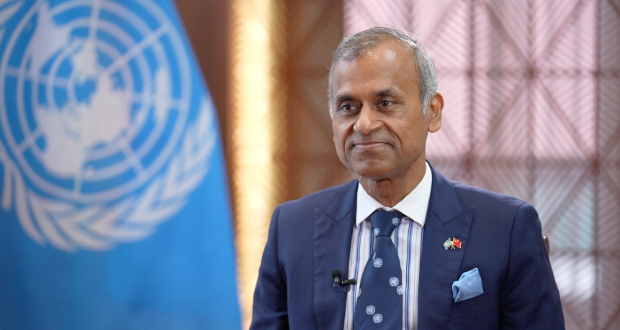Chatterjee said the UN Summit of the Future, which is scheduled to be held this September at the UN Headquarters in New York, is a key opportunity for all UN members.
He made the comment during an event hosted by the UN Resident Coordinator's Office in China and the Joint Council of China International Cooperation Center (ICC) on May 14 in Changsha, capital city of central China's Hunan Province.
Urgent need to address interlocking crisis together
Speaking on the Summit of the Future, Chatterjee said the entire world is seeing "interlocking crises" – the pandemic, climate change, energy shortages, financing problems and 70 ongoing conflicts across the world.
"There are approximately 800 million people going to bed hungry every night and over 120 million people have been displaced because of conflicts, because of climate change, because of instability, and because of poverty," he said.
"That is precisely why the UN secretary-general has launched the Summit of the Future – simply to revive the spirit of multilateralism and address the key issue of getting Sustainable Development Goals (SDGs) implemented," Chatterjee said.
He stressed that this is a once-in-a-generation opportunity and the UN needs to have a convergence of views among the 193 member states.
China shares experiences for SDG goals
China has made commendable achievements in sustainable development and actively works with other countries, especially developing countries, the UN envoy said.
"I want to commend China on the achievement of cleaning up the air in Beijing. Now when I look at China, over 60 percent of the vehicles are electric. I've been to a place called Kubuqi in Inner Mongolia where the seventh largest desert in China has been converted into an agricultural wonderland," he said.




